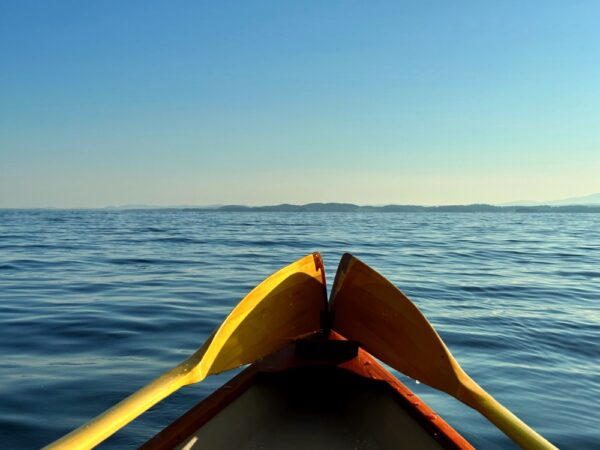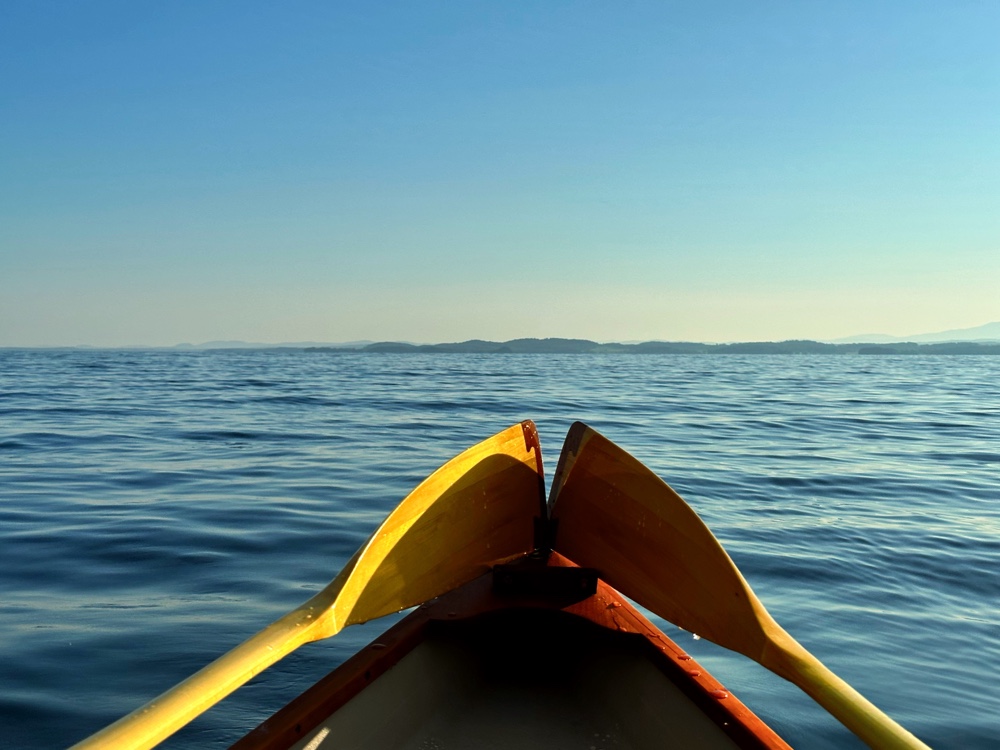I spent my morning dorying at last! It’s not my first morning dorying, but it’s been far too long (despite my June/July enthusiasm).
I’m throwing myself into the arms of a 14’ dory and a pair of oars. Both trimmed in cherry. Both as handsome as they are nimble and water worthy. (Source: First Forays in Vermont Dory)
It was love from the first oar pull. But then the rain began. Sooo many drizzly mornings this summer, but today was spectacular.
I awoke early (3:00 am!) though I did try to snooze for a while. Shortly after 5:00 I confirmed the positive weather forecast, fed Carley, quick breakfast, and then down to the boathouse. Glorious!

It’d been nearly a month since my last rowing sortie, so a bit of spiderweb cleaning was undertaken before pushing off.
Morning dorying. Sublime. A little wind had begun to build out of the north. The wind and the waves accounted for a 30 minute northward and a fifteen minute return, often coordinating my air strokes while surfing the wave surge. Tremendous fun!
I’ll keep this evening’s post brief since Susan and I are about to jump into the hot tub to watch the sunset. But a quick springboard for a future post: dory as verb.
What is Dorying?
What does it mean to dory? To glide effortlessly through any condition. To ride storms and calm with equal ease. To embody beauty, simplicity and rugged functionality simultaneously. To dory is a philosophy, if you will, a metaphor. If I am riding a rough sea, or a tumultuous rocky rapids, or coasting effortlessly on a mirror pond, I trust to the instincts of my doried nature to carry me safely. (Source: DoryMan)
Literally and metaphorically apropos. I look forward to germinating a poem about morning dorying soon. But first another quick point of reference for the dorying tradition.
Each year, during the third weekend in July, dorymen from the Pacific City area celebrate the Cape Kiwanda, Oregon, dorying tradition.
Early or traditional-style Cape Kiwanda dories are flat-bottomed, double-ended boats, pointed at the bow and stern, so that they can easily ride the waves. Fishermen, who practice the dorying tradition, go out in pairs, and row with long spruce oars in synchronized motions. (Source: The Library of Congress)
Those long hours — cherry tipped, in my case — are a considerable component of my morning dorying bliss. Such a fulfilling sweep. Long, smooth, powerful. Well over a dozen hours, my shoulders and back still remember the rewarding effort. I look forward to getting out there again soon.

Leave a Reply